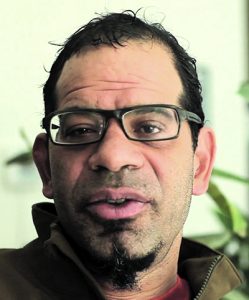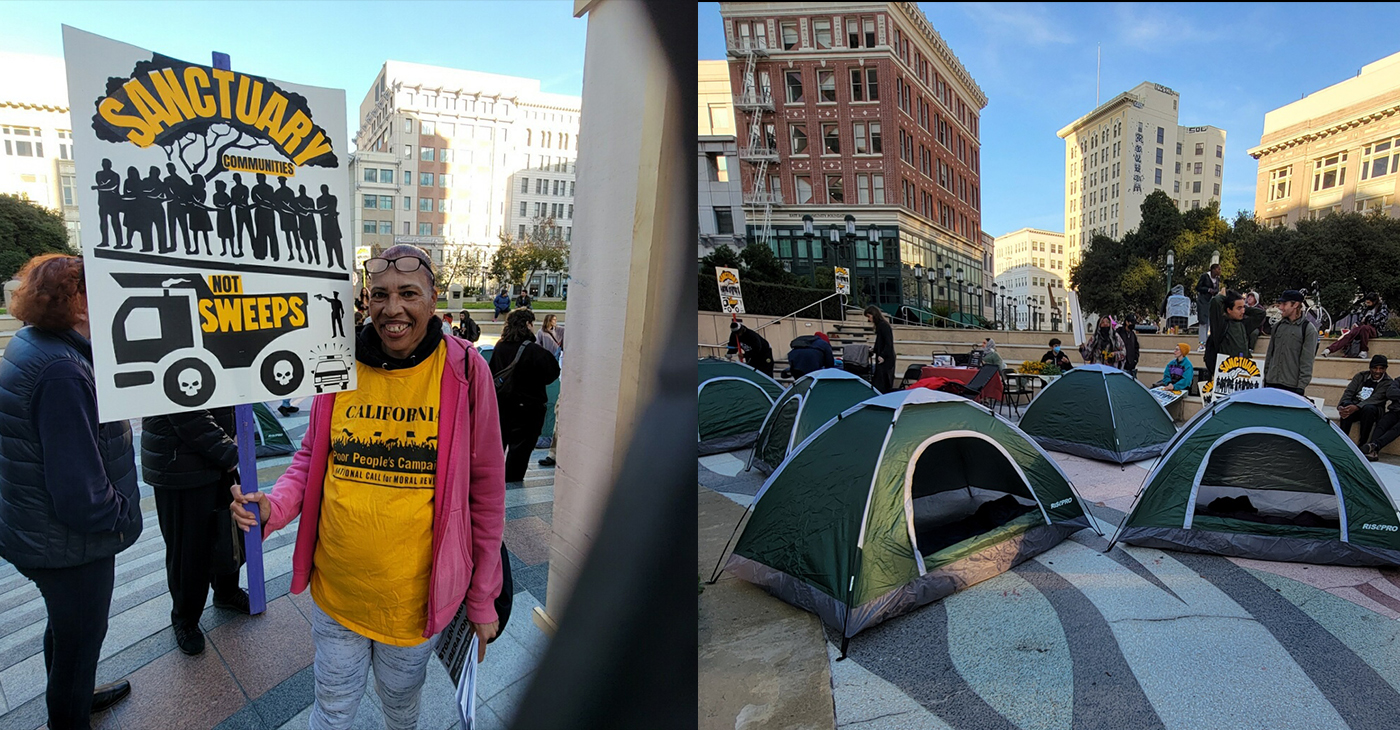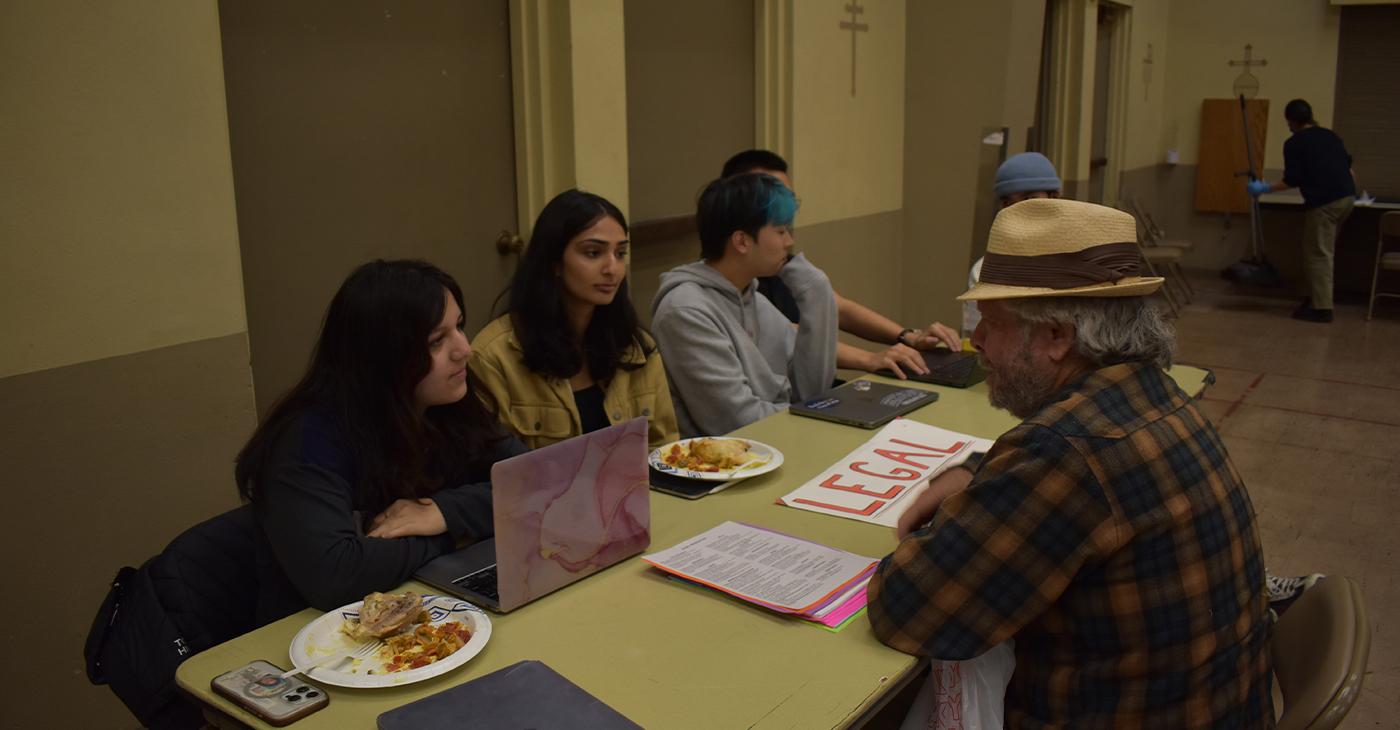Housing
Opinion: Hold Mayor Schaaf Accountable for Housing, Police Reform Failures

By Eric Arnold
The Mercury News (August 12, 2018) reports that as a candidate Libby Schaaf promised that 28 percent of the housing built in Oakland would be affordable.
The article also notes only 6 percent of housing currently in the pipeline is considered “affordable.”
Most of that 6 percent “affordable” housing was generated by community-benefit agreements, and not solely by impact fees—which do not guarantee onsite affordable units in new developments .
How is that acceptable, if displacement and affordability are the top two issues in Oakland today?
If Lailan Huen, Ayodele Nzinga, Carla Service, Alvina Wong and I had not personally negotiated those community benefit agreements, the affordable housing in the pipeline might be closer to 1 percent-2 percent.
The residents of Oakland are owed an explanation of why this 28 percent target was not even in the ballpark.
That is either incompetence or benign neglect or both. If private developers can hit 20 percent affordable housing targets, and BART can hit 30 percent, what is the reasonable explanation for Oakland’s poor performance in this area?
Remember, the 28 percent target was Mayor Schaaf’s own projection.
Meanwhile, development was accelerated at market-rate, resulting in a 76 percent increase in rents both commercial and residential and only a single-digit wage increase. I am using City numbers here, so there is no way any elected official can say they were unaware.
There are many things the mayor could have done but didn’t. She could have appointed Planning Commission members with deeper ties to the flatlands residents instead of contractors and developers more familiar with Piedmont than the Lower Bottomz.
She could have not given carte blanche to the Big Five developers. She could have incentivized affordable housing units with a stronger impact fee law.
She could have bought instead of sold public land and turned those into affordable buildings. She could have prevented the loss of 50 percent of Single-room Occupancy (SRO) stock in downtown.
Oakland has known it would have to do this since 2012 when redevelopment was eliminated, and the writing was on the wall prior to Mayor Schaaf’s election.
She made affordable housing and not displacing current residents a talking point but did not manage to come up with anything concrete as far as policy initiatives, which is what the situation required.
This is one reason Oakland got an equity score of 33 out of 100 in a recent equity study.
Is anyone crunching the numbers and looking at Schaaf’s actual track record? Mayor Schaaf is also weak on police misconduct cases. During the OPD sex scandal, she was more concerned about PR than holding criminal officers accountable. She was ok with a cover-up as long as she had plausible deniability. She did not call on District Attorney Nancy O’Malley to prosecute those cops who had illegal relations with a minor. She was silent.
In 2017, OPD misconduct racked up another $12 million in legal payouts on top of the $1 million paid out to the victim in the case, Celeste Guap.
Meanwhile, OUSD is cutting sports programs and the homeless crisis has proliferasted on her watch.
Schaaf could not even keep coal out of the Port terminal.
Where, in what world, is this acceptable?
So, the question becomes, should we give an ineffective mayor who merely continued the agenda set by Jerry Brown for gentrification—and displacement—the benefit of the doubt when she has yet to craft effective policies?

Eric Arnold is an Oakland journalist, researcher, archivisit, cultural historian and multimedia producer.
Or do we hold her accountable for promises she made which she has not delivered on? How is she not responsible for the current homeless crisis and disproportionate displacement of African Americans?
Activism
Protesters Gather in Oakland, Other City Halls, to Halt Encampment Sweeps
The coordinated protests on Tuesday in San Francisco, Oakland, Vallejo, Fresno, Los Angeles and Seattle, were hosted by Poor Magazine and Wood Street Commons, calling on cities to halt the sweeps and focus instead on building more housing.

By Post Staff
Houseless rights advocates gathered in Oakland, San Francisco, Los Angeles, and other city halls across California and Washington state this week protesting increased sweeps that followed a U.S. Supreme Court decision over the summer.
The coordinated protests on Tuesday in San Francisco, Oakland, Vallejo, Fresno, Los Angeles and Seattle, were hosted by Poor Magazine and Wood Street Commons, calling on cities to halt the sweeps and focus instead on building more housing.
“What we’re dealing with right now is a way to criminalize people who are dealing with poverty, who are not able to afford rent,” said rights advocate Junebug Kealoh, outside San Francisco City Hall.
“When someone is constantly swept, they are just shuffled and things get taken — it’s hard to stay on top of anything,” said Kealoh.
Local houseless advocates include Victoria King, who is a member of the coordinating committee of the California Poor People’s Campaign. She and Dr. Monica Cross co-chair the Laney Poor People’s Campaign.
The demonstrations came after a June Supreme Court ruling expanded local governments’ authority to fine and jail people for sleeping outside, even if no shelter is available. Gov. Gavin Newsom in California followed up with an order directing state agencies to crack down on encampments and urging local governments to do the same.
Fresno, Berkeley and a host of other cities implemented new rules, making it easier for local governments to clear sidewalk camps. In other cities, such as San Francisco, officials more aggressively enforced anti-camping laws already on the books.
Activism
Through Two Programs, Shuja Helps Others Get a Second Chance at a First-Class Life
Damon Johnson, a peer counselor who serves as the executive director of Black Men Speak and Men and Women of Color will be affected by the state’s new rules. Living with a behavioral health condition, he is an advocate and a leader. Damon, best known as Shuja, was incarcerated for 34 years and today is advocating for the rights of persons with similar lived experience and for the survival of peer-led programs like the one he manages.

By Melody Parker, Gloria Woodson, Jaleah Winn and Damon Shuja Johnson
Special to The Post
Under recently passed Proposition 1, California’s behavioral health services will be allocated $1 billion for services for the unhoused in 2026-27, Governor Gavin Newsom announced last summer.
Although some of the funds from the Mental Health Services Act were diverted to Proposition 1, individuals living with behavioral health conditions and housing challenges are maintaining hope for wellness and recovery.
Damon Johnson, a peer counselor who serves as the executive director of Black Men Speak and Men and Women of Color will be affected by the state’s new rules. Living with a behavioral health condition, he is an advocate and a leader. Damon, best known as Shuja, was incarcerated for 34 years and today is advocating for the rights of persons with similar lived experience and for the survival of peer-led programs like the one he manages.
Two days after his reentry to the community, Shuja began work as an outreach coordinator for Black Men Speak. Within a year, Shuja was promoted and later appointed to director after the loss of former Black Men Speak Executive Director Joe Anderson.
A native of North Oakland, Shuja was raised in an all-women household after his grandfather was murdered. Though dealing with his own grief, the loss caused Shuja to become the “man of the family.”
His grandmother’s nurturing helped him to overcome the trauma of his grandfather’s death which, “gave him a foundation as a child.” He recalls fond memories of his childhood, like riding a new bike he received for the holidays. “My friends and myself spent meaningful time together as children,” he said. “Together, we would build go-carts, climb trees, have rock fights and find worms, crabs and bees.”
But his trauma impacted his childhood and led to his being impacted by the system. Shuja grew up mostly in detention halls and prison.
Besides directing Black Men Speak! (BMS!)/Men and Women of Color (MWOC), he is also the director of a self-help center in Oakland. There, Shuja and the peer workers provide support to the unhoused. He coordinates a digital literacy program, co-facilitates trainings for peer support specialists, organizes a service animal resource, provides peer support and directs speakers’ bureaus.
BMS! and MWOC are programs increasing wellness and recovery by sharing stories of hope and journeys to meaningful living. Members have authored presentations and spoken to audiences on topics such as post-traumatic stress disorder, family, community violence, self-worth, spirituality, and mental health, alternative therapies, eight dimensions of wellness, reentry, single parenting and health.
The members have been featured nationally and locally, at trainings and conferences and throughout Alameda County Behavioral Health Care services. The organization has been in operation for over a decade.
It all began in 2009 and received nonprofit status in 2012. The group developed from Peers Organizing Community Change, formerly known as Pool of Consumer Champions (POCC), originally established as an all-men’s committee.
The committee co-founders Dewitt Buckingham and Darnell Livingston organized men with experience in the public mental health system for a speaker’s bureau. This was the consensus of the committee after a process facilitated by Katrina Killian, Steven Bucholtz, Sally Zinman and Jaleah Winn.
The committee and facilitators composed the following mission. The BMS!/MWOC mission is “to inform and enlighten the mental health community and the general public about issues concerning men and women of color suffering from mental health and substance abuse challenges, through storytelling thereby promoting ad increasing wellness, recovery, and freedom.”
Shuja has a vision and plans for the organization. “BMS!/MWOC will be sustained with the funding of $1.5 million for capacity building to hire people to pay salaries for staff.”
Currently, BMS!/MWOC has volunteers assisting the programs. Funding will enable the enhancement, increase in self-help services and provide for outings and meals. “We want exposure as when adults and children have taken the free BART rides to go to places outside of Oakland that they never traveled,” Shuja said. “We want to go to Africa. More influential communities can travel, and we need the same opportunity.”
Despite several barriers that are facing Shuja and the organization, he is determined to fulfill the nonprofit’s mission. “There is money. Children wear $200 shoes. We want to teach financial literacy, not to be a slave but how to buy and how to keep. BMS! needs some rich friends and we also need friends who have know-how. We need support from private and public sectors.
“BMS! is one of the only Black organizations in ACBHCS. Today we have the SB 803, Peer Support Specialist bill that will enable us to bill Medicaid/Medi-Cal and only two full-time staff. We do not have the support of the community.”
Shuja is honored to be a participant in advocacy for legislation to improve the lives of peers and is not discouraged by changes to statewide policies. The current changes coming down the pike with Prop 1 are motivating him to work more diligently for the rights of behavioral health clients.
“This is about employment and empowerment and authenticity. The unhoused can be asked about hope and faith. I had to have faith and hope every day that I awakened in prison. I would have died in prison, but I had hope, faith and peer support and it manifested.
“My first reentry job is to go back to my family and save them and if this is repeated among families then we will have wellness and community. Kids raise themselves today. Today, grown folks cannot be in kids’ business. We want to do better. How can we bring back the good of the past?”
Today, the good of the past is coming back with the work of Black Men Speak! Men and Women Of Color. All support is welcome. Black Men Speak and Men and Women of Color welcome contributions and invitations to collaborate. In order to contact the program staff please reach out to 510-969-5086 or shuja@blackmenspeak.org.
Activism
A Student-Run Group Is Providing Critical Support Services to Underserved Residents
During his three years volunteering at the program, Resource Director Zain Shabbir, says he noticed that many of the people who come in do not know how to navigate social services support systems, particularly online. This knowledge deficit, Shabbir says, is due to age or limited exposure to technology.

Part 2
By Magaly Muñoz
Resource Director Zain Shabbir is a jack-of-all-trades at the Suitcase Clinic, a student-run resource center that provides health and other services to underserved residents of Berkeley and surrounding areas.
Shabbir was once a clinic director. Now, he manages the General Clinic, floating around when case managers need assistance. And he has big plans for a new initiative.
During his three years volunteering at the program, Shabbir says he noticed that many of the people who come in do not know how to navigate social services support systems, particularly online. This knowledge deficit, Shabbir says, is due to age or limited exposure to technology.
So, he teaches clients the basics of using email, writing in word documents, and backing up files to their phones.
Shabbir shared a story about an interaction he had with a woman who came in seeking help to create a template to message property owners and realtors as she was seeking housing. Until that point, the woman was composing separate messages to each listing she was interested in, and that process was taking up too much of her time. With Shabbir’s help, she created a standard template she could modify and use for each housing inquiry or application.
He’s also hoping to use the technology to help people create resumes to find jobs.
“[The intent] is to help people find work in the city or wherever they live — or help them find housing. As most are probably aware, the two really go together because for housing, you need income verification, and for a job you need housing,” Shabbir said.
Having a warm place to go and a hot meal may seem basic buy it is critical for people who are struggling, clinic leaders say.
Mark, a frequent attendee of the Tuesday clinic, told the Oakland Post that he’s been receiving services from the program for nearly 25 years.
Mark said he was able to receive a referral to dental care through the Clinic, which he’s been using for about 20 years now. He also utilized the chiropractor, a service that is no longer offered, for pain and aches he acquired over the years.
Many program participants say they visit the clinic now for services provided by Berkeley medical students, who rely on osteopathic care rather than traditional methods. Osteopathic medicine is a medical philosophy and practice that focuses on the whole person, rather than just symptoms.
Executive director Nilo Golchini said that many clinic patients tend to appreciate and trust this type of medicine over mainstream practices because of sub-standard care they have received in the past because they are homeless or poor.
Acupuncture is also an extremely popular station at the Clinic as well, with participants saying it “soothes and calms” them.
Attendees of the clinic are generally in happy spirits throughout the hours they’re able to interact with fellow residents. Some even participate in arts and crafts, moving from table to show their friends their new creations.
“It’s a program that’s going strong,” said Golchini. “There’s a space for everyone” who wants to volunteer or receive services, and they’ll keep going as long as the community needs it.
The Suitcase General Clinic is open every Tuesday from 6:30 to 9:30pm. Women’s and Youth Clinics are held every Monday from 6 to 9pm.
-

 California Black Media4 weeks ago
California Black Media4 weeks agoCalifornia to Offer $43.7 Million in Federal Grants to Combat Hate Crimes
-

 Black History4 weeks ago
Black History4 weeks agoEmeline King: A Trailblazer in the Automotive Industry
-

 California Black Media4 weeks ago
California Black Media4 weeks agoGov. Newsom Goes to Washington to Advocate for California Priorities
-

 Activism4 weeks ago
Activism4 weeks agoOakland Post: Week of November 27 – December 3, 2024
-

 California Black Media4 weeks ago
California Black Media4 weeks agoCalifornia Department of Aging Offers Free Resources for Family Caregivers in November
-

 Activism2 weeks ago
Activism2 weeks agoButler, Lee Celebrate Passage of Bill to Honor Congresswoman Shirley Chisholm with Congressional Gold Medal
-

 Activism2 weeks ago
Activism2 weeks agoPost News Group to Host Second Town Hall on Racism, Hate Crimes
-

 Activism2 weeks ago
Activism2 weeks agoDelta Sigma Theta Alumnae Chapters Host World AIDS Day Event




















































